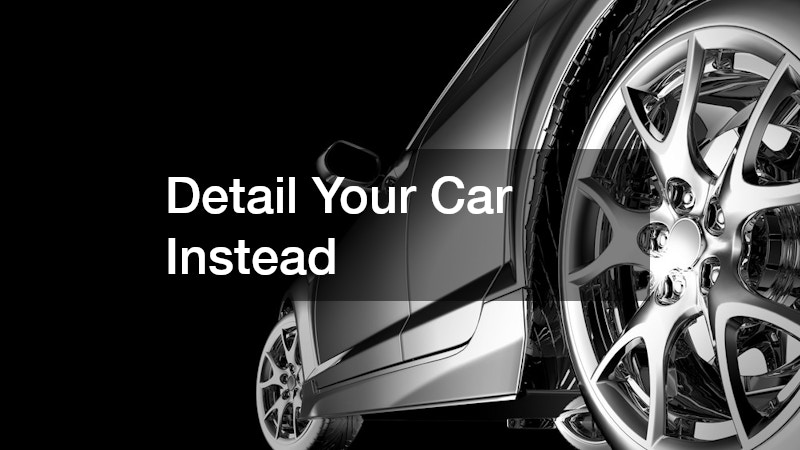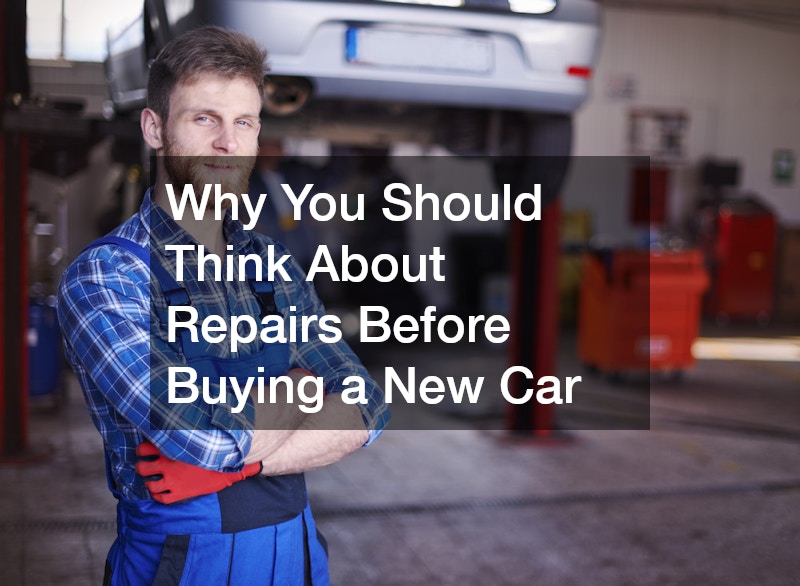You’re considering buying a car. Isn’t it exciting to think about owning a new vehicle? Shiny exteriors, plush interiors, and cutting-edge features make anyone’s heart race. But before you make such a big decision, it’s important to understand why you’re buying a new car in the first place.
The upgrade or the fresh look is only part of the excitement. This is a complex decision that involves practical, emotional, and financial factors. This guide is designed to help anyone thinking about purchasing a new vehicle. So, take a seat – this is the first thing you’ll want to read.
Consult Auto Experts First
Let’s switch gears and discuss why it’s important to consult automotive experts before making a purchase. They know what’s happening in the automotive world – from the latest trends and reliable models to reasons for upgrading from an older car.
Why consult a professional, you ask? Auto experts have years of experience. They’ve seen it all – from mechanical issues to recalls – and their insights go far beyond brochures or online reviews.
Don’t limit yourself to just one expert. It’s a good idea to get a variety of perspectives. Visit a few local auto repair shops and chat with mechanics. They’re on the front lines, dealing with problems when things go wrong. This will give you a clearer picture of which parts often need replacing and how much maintenance may cost.
Don’t forget to check out online forums for car enthusiasts. These platforms can be a goldmine of information and real-world experience. Just remember to take everything with a grain of salt, as your experience may differ. Always consult experts before getting too excited about a new car. They can help you avoid costly mistakes and guide you in the right direction.
When is the Best Time to Buy?

Timing is key when buying a car. There’s a “right” time to make a purchase, and understanding seasonal trends can help. Spring and early summer often see car inventories increase, giving you a wider range of vehicles to choose from.
If you’re hunting for a great deal, consider waiting until the end of August when the market slows down, and sellers may be more willing to negotiate. You’d be surprised at how much you can save during this period!
Year-end deals are another great reason to purchase a new car. Dealerships need to meet quotas and clear out old stock, making December an excellent time to grab a bargain. You could drive off with a new car and extra cash in your pocket.
Of course, these are just general trends. Your situation will also determine the best time to buy. Maybe you’ve just landed a new job that requires a longer commute, or your current car is no longer reliable. The best time to purchase is when it makes sense for you.
Consider Repairs Before You Buy
While the excitement of purchasing a new car can be hard to beat, it’s crucial to also consider potential repairs, especially for things like the windscreen. Imagine driving off the dealership lot, your new car gleaming in the sunlight, only to notice a crack in the windscreen a few days later. It’s not just a minor cosmetic issue – a damaged windscreen can compromise the structural integrity of the car and pose serious safety risks. In fact, a cracked windscreen can impact the deployment of airbags and reduce the car’s ability to withstand accidents, so it’s essential not to overlook this.
Before you rush to the first auto glass shop that you find, take the time to research and choose a reliable provider. Not all auto glass repair services are created equal. While some offer high-quality, long-lasting repairs, others may take shortcuts that compromise the safety and durability of the repair.
When selecting an auto glass repair company, focus on finding one with a strong reputation for excellent customer service and quality workmanship. You should always receive a detailed estimate that outlines the cost of the repair or replacement, along with a realistic timeline for completion. A reputable service provider will offer transparency in both pricing and process, so you’re not left wondering about any hidden costs or delays.
It’s important to remember that opting for the cheapest service is not always the best choice. While it might seem appealing to save a few dollars, low-quality repairs can often lead to more significant issues in the future, costing you more money in the long run. For example, improperly installed windscreen repairs can result in leaks, further damage, or even more severe safety concerns down the track.
Upgrade to Newer Parts
One of the most compelling reasons to buy a new car is the advantage of newer, more advanced parts. The thought of experiencing the smooth performance of a new automatic transmission or the improved fuel efficiency of the latest engine components can be a major draw for many buyers. Modern vehicles are equipped with state-of-the-art technology, designed not only for greater reliability but also for superior performance and reduced maintenance needs.
While older cars certainly have their charm and character, they often come with components that have seen better days. As these parts wear out, they can become a source of frequent breakdowns or costly repairs. Newer cars, however, benefit from innovations in automotive design, which aim to increase durability, reduce the frequency of repairs, and improve overall fuel efficiency. Take, for example, modern automatic transmissions, which are built to offer smoother shifts, better fuel economy, and more consistent performance.
Additionally, with new cars, you won’t have to worry about tracking down hard-to-find parts or dealing with the reliability issues of ageing components. Every part, from the engine to the braking system, is fresh and designed to last. This provides significant peace of mind, knowing that your car’s most critical components are all up-to-date and working at their best.
That said, newer doesn’t always equate to better. When considering a new car, it’s crucial to do your research. Different models can offer varying levels of quality and technology, so it’s important to weigh the pros and cons of each before making a decision. A car is a major investment, and you’ll want to ensure that it delivers long-term value, both in terms of reliability and performance, so you can make the most of your purchase.
Consider Switching Vehicles
Sometimes, the best reason to buy a new vehicle is simply the desire for a change. Perhaps you’ve been driving the same sedan for years, and now you feel like switching things up. If you’ve ever considered an RV, it could be the perfect choice to align with your evolving lifestyle. An RV offers unparalleled freedom, allowing you to travel, work, and even live anywhere, all while enjoying the comforts of home. Whether it’s for a road trip, a long-term adventure, or just as a flexible accommodation option, an RV provides a sense of independence that a regular car simply can’t match.
That said, before you make the leap into RV ownership, it’s essential to do your research. RVs, like all vehicles, come with their own set of challenges, especially when it comes to maintenance and repairs. Unlike standard cars, RVs often require more specialised parts, and repairs can sometimes be more complex and expensive. Be prepared for the fact that upkeep might take more effort, time, and financial investment than you’d expect with your usual car.
However, the benefits of owning an RV can far outweigh these challenges. With regular care and attention, an RV can serve you for many years, providing the kind of flexibility and adventure that few other vehicles can offer. Imagine the freedom of hitting the road for an extended trip, knowing that you have everything you need right there with you.
It’s also worth considering other vehicle switches that might better suit your changing needs. Maybe an SUV fits your lifestyle better than a sedan, or perhaps you’ve always dreamed of a convertible. The options are vast, each offering unique advantages, whether it’s the practicality of an SUV, the luxury of a coupe, or the open-air experience of a convertible. Even if you’re considering a lifestyle change, like moving from a city to a rural area, switching vehicles could help support that transition.
The point is, buying a new vehicle isn’t just about upgrading to the latest model – it’s about choosing a car that complements your lifestyle. Whether you’re looking for more space, more flexibility, or simply something that offers a new experience, switching vehicles can bring a refreshing change and better suit your current needs. So, why not embrace the opportunity for a change? It could be the perfect time to invest in something that truly fits your lifestyle.
Moving? Maybe It’s Time for a New Car
If you’re planning a big move, buying a new car could be a smart decision. While it may seem strange to buy a new vehicle for this reason, it can make sense.
Moving to a new city or even a different climate can be a significant life change. You’ll likely encounter unfamiliar roads, driving conditions, and even weather. A reliable car is essential during this transition.
For example, if you’re moving from a warm climate to one that experiences snow, your current car might struggle to handle icy conditions. Buying a vehicle designed for colder climates would make more sense. Similarly, if you’re relocating from a quiet suburban area to a busy city, a compact, fuel-efficient car might be a better choice than a large sedan.
Also, consider the age of your current vehicle. Long-distance moves can be tough on your car, leading to expensive repairs. Buying a new vehicle after a move might be a great way to ensure you have a reliable ride for the new chapter of your life.
Detail Your Car Instead

Before rushing into buying a brand new car, why not give your current vehicle a fresh lease of life? Car detailing can work wonders.
If you’re looking to enjoy that clean, shiny interior you’d get with a new car, consider having your current vehicle detailed. Detailing is more than just a wash and vacuum – it involves a thorough cleaning of every part of your car, restoring it to its original glory. It’s like spring cleaning for your car.
The best part? You don’t always need to hire professionals. With a bit of time and effort, you can perform DIY detailing and get great results. Pressure washing services are available for exterior cleaning, but hand washing can also be effective, and it allows you to focus on areas that need extra attention.
Detailing isn’t just about looks – it also helps maintain your car’s value and prevents unnecessary wear. Your car will not only look brand new but feel like new as well.
Check Your New Car for Legality
Once you’ve purchased your new car, there are a few legal steps to take. While it’s not the most exciting part of buying a new vehicle, it’s just as important.
Start by registering your car. Each state has its own time limit for vehicle registration, and the process typically involves paperwork, fees, and possibly a visit to the Department of Motor Vehicles.
Next, don’t forget about insurance. You must insure your car before you can legally drive it. This protects you, your passengers, and others on the road in the event of an accident.
If you live in a state that requires emissions testing, be sure to have your car tested. To meet environmental standards, your vehicle will need to pass an emissions test before you can drive it legally.
It may not be as exciting as picking out your car’s features, but these legalities are just as important. Take the time to get them right, and you’ll enjoy a smooth, hassle-free driving experience.
Buying a car is a big decision, from assessing your budget and needs to navigating the legalities. Whether you’re upgrading, moving, or just looking for something new, it’s essential to do your homework first. With the right preparation, you’ll soon be driving away in your new car.
